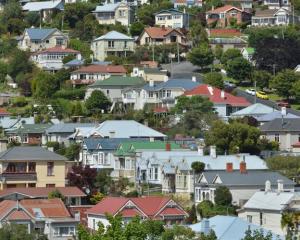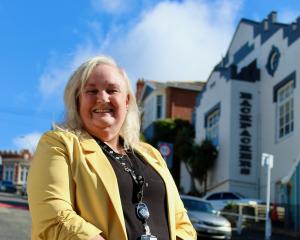Nationally, sales activity for the month of March fell 53.3 % from a year ago, according to the mid-year New Zealand Residential Property Overview report released by the Sydney-based mortgage insurer and lender, PMI Mortgage Insurance, yesterday.
While sales volumes were expected to become steady during the year, the market was unlikely to become any more favourable for sellers, PMI chief executive Ian Graham said in a statement.
"People under some pressure to sell property will be forced to lower their sale price from what the property was originally listed at," he said.
"South Island regions are generally performing slightly better than their North Island counterparts, but even Otago and Southland are showing signs of softening," Mr Graham said.
He forecast the oversupply of high-value properties in Central Otago would see house prices fall during the year and, while Southland house price growth had been "stunning" at 29% for the year, having been boosted by low prices attracting investors, rental yields in that province had since fallen below the national average, which would see investor interest wane.
He forecast a rise in forced mortgagee sales as some property owners would have overextended themselves and be unable to meet increasing mortgage rates.
In order to quell inflation, rising beyond the Reserve Bank's outer 3% target already, the central bank is holding interest rates at 8.25%, the highest figure in the developed world.
But banks facing higher global lending costs are setting fixed and floating rates beyond 9%-11%.
The earliest prediction for the Reserve Bank easing interest rates is September this year, with some analysts not expecting it until early 2009.
"Any dip in mortgage rates is unlikely to be sufficient to rekindle buyer demand in the housing market, so turnover will remain at low levels," Mr Graham said.
Factors compounding low turnover include the inability of new home buyers to get into the market, lower capital gains for investors considering selling and the higher interest rates deterring investors from buying more properties.
With the house market not having been this slow since 2001, prices looked to be falling at their fastest rate in the past 10 years, Mr Graham said.
Statistics for Otago and Southland, based on Real Estate Institute of New Zealand figures, showed the provinces' combined sales for the nine months to March fell 20%, when comparing 2007 to 2008.
Only the region of Nelson-Marlborough fared better, with a 19% fall, while Auckland and the separate Waikato-Bay of Plenty-Gisborne regions both had a 40% fall, Christchurch 29% and Canterbury-Westland 30%.
"On average, prices are expected to fall by 3%-4% over the coming year, although the substantial drop in sales activity suggests the market is at risk of average prices declining by as much as 10% from their peak," Mr Graham said.









